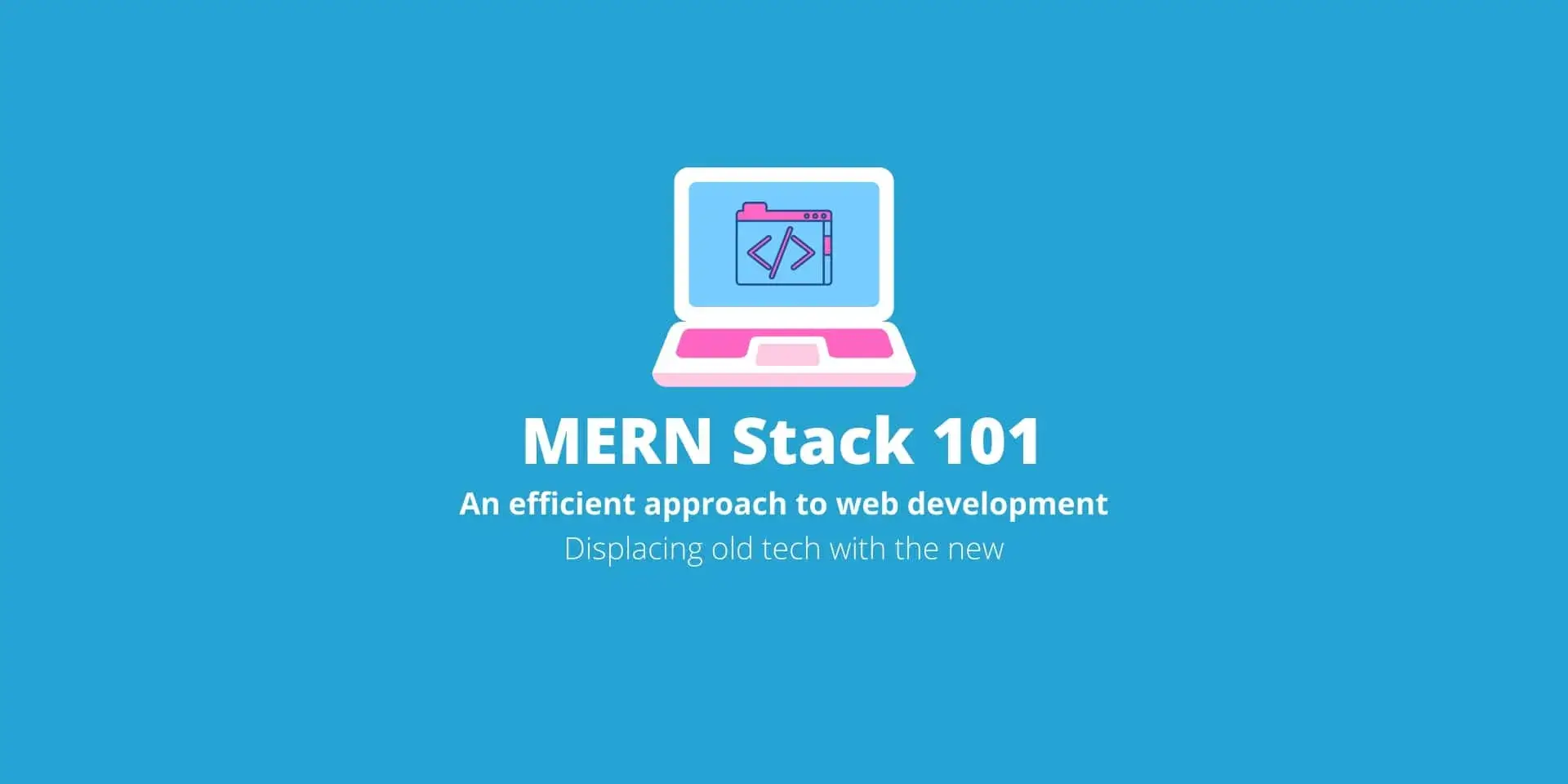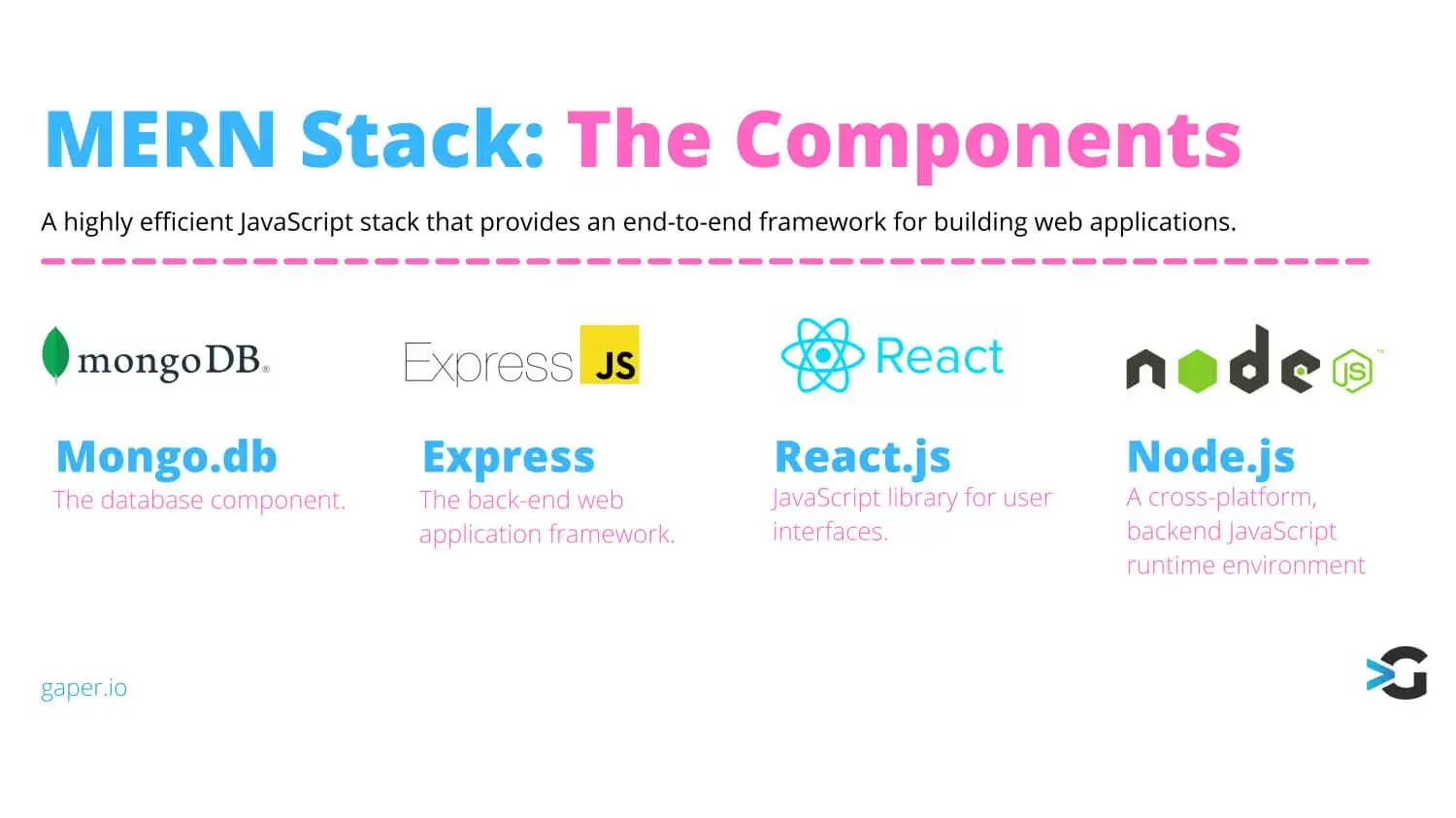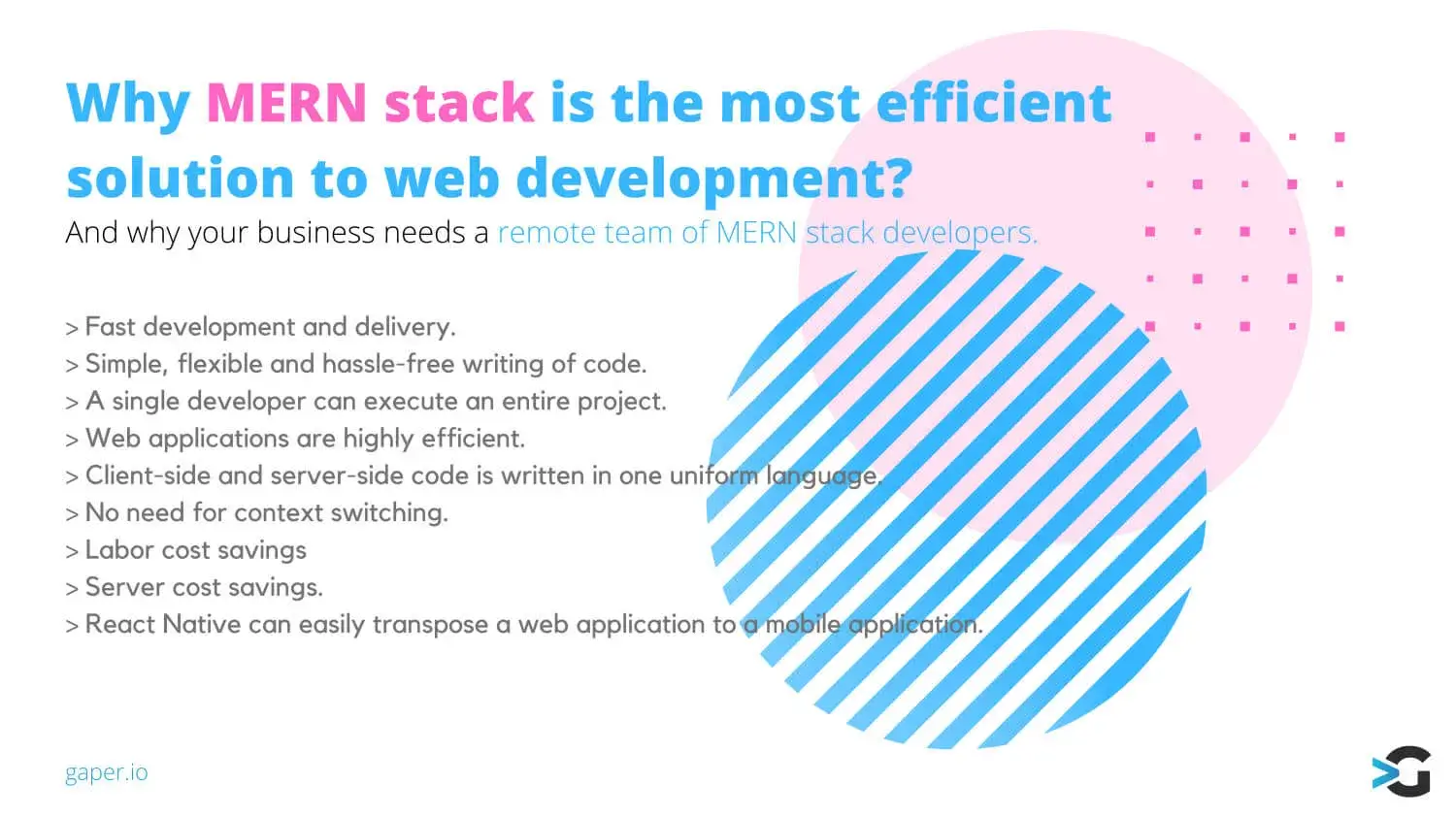2020 taught us that progress waits for no one. Well, a lot of other events in the past have delivered that lesson, but keeping it pertinent to the tech world, we saw a catalytic development of certain technologies, while others set out on a road to obsolescence.

2020 taught us that progress waits for no one. Well, a lot of other events in the past have delivered that lesson, but keeping it pertinent to the tech world, we saw a catalytic development of certain technologies, while others set out on a road to obsolescence. Fintech alone saw a dramatic wave of innovation that looks set to change the role of traditional banks in the coming years.
The case this article looks at is that of MERN Stack. Gaper’s objective to achieve domain leadership in the area of MERN stack was not an arbitrarily chosen goal. What with the growing demand and unmatched efficiency of producing web applications through the MERN stack, it only made sense for us to strengthen our teams with this sought after skill.
MERN stack (MongoDB, Express, React, and Node) has of recent times been taking over the place of MEAN stack (whereby React is now the popular choice for user interface coding/frontend framework rather than Angular).
MERN is an example of a web technology stack. Such a stack comprises a combination of frameworks used to develop a software product. This also means that developers are not only able to be in control of the algorithmic/logical backend areas of web development, but also the user experience and creative design aspects of the frontend.

This is the component which plays the role of managing databases. It is a non-relational document-oriented, schema-less database. In this case, the JSON format is used to manipulate data. However, it is quite straightforward to convert it into JavaScript data (or vice versa) if the developer has good knowledge of relevant libraries. Data handling is further made easy and flexible because this approach allows the database structures to change over time. They become easy to scale.
Express is a web application framework for Node.js. The Express framework allows developers to build robust web applications and APIs. It helps introduce another layer of efficiency to the coding process since developers can just use Express to write server-side code instead of writing it in its entirety on Node.js. This removes the redundancy of repeating the same code as is done in the Node.js HTTP module.
Express enables the creation of REST API that helps in retrieving data through HTTP requests, which in turn are executed with React.js.
The component of MERN stack that distinguishes it from MEAN stack, React.js takes care of the front-end of a website. It is a very popular choice of library used by developers to achieve fast loading speeds of webpages, and smooth animations and transitions.
Because views rendered in HTML using React are declarative, any changes in the view’s state or the data is not something that developers need to address. Also, React allows the same code to be executed on the server and the browser.
Node.js, an incredibly fast and efficient programming language, interacts smoothly with JavaScript and is used to develop scalable network applications. It employs its own module system to put JavaScript files together (each file is treated as a separate module).
In essence, Node.js unites web application development through a uniform usage of one programming language, as opposed to having to use different languages for the server and client sides.
A challenge that a lot of firms still face surrounding the development and delivery times of software is catered to adequately by the MERN stack. This is done through simple, flexible and hassle-free writing of code that a single developer is capable of using to produce a complete, finished product.
The most major advantage of employing the MERN stack is the common presence of JavaScript. Your entire code, both client-side and server-side is written in one uniform language, i.e. the need for context switching is eliminated.
MERN stack is therefore a remarkably useful approach to developing efficient web applications.

The aforementioned uniformity of one programming language means that firms in need of these services do not have to hire two or more individuals to take care of the frontend and the backend.
If someone is proficient in JavaScript (with some knowledge of ES6 Fundamentals), they will be able to produce a full-fledged, efficient web application using the MERN stack.
The MERN stack also helps control server costs.
The React Native component of MERN stack makes it very straightforward to transpose a web application to a mobile application.
As such, MERN stack is characterized by a lot more subtle but impactful improvements to web development that other modes of programming may not be able to boast of. The benefits of hiring remote teams of MERN stack engineers will be particularly important for small and new businesses that need a cost effective solution to building efficient web applications.
Top quality ensured or we work for free
